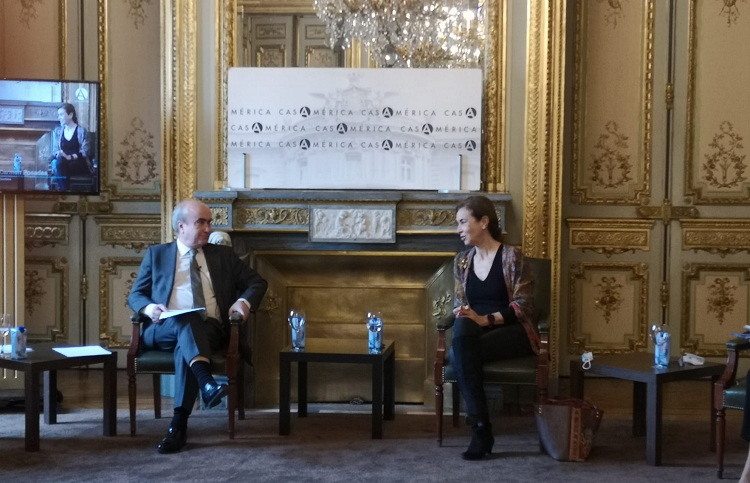The Diplomat
The Organization of Ibero-American States for Education, Science and Culture (OEI) presented last Friday the institutional campaign #EscribeLaHistoria, through which it remembers the life and work of ten Ibero-American women who stood out in fields such as literature, art or science, but whose achievements and contributions “have been made invisible in school textbooks”.
The aim of this campaign is “to draw attention to the need to bring to light the lives of many other women who changed history, but whose careers, achievements and successes did not make the news”, declared the secretary general of the OEI, Mariano Jabonero, during the presentation of the event, which took place at Casa de América and was part of the commemorative events of International Women’s Day.
Jabonero also assured that the OEI surpasses many other institutions in terms of parity, since “58% of the governing body of the Organization of Ibero-American States are already women”, and explained that the organization works for gender equality based on four main components: the empowerment of girls and women, the fight against violence and discrimination, the analysis of the main barriers faced by women and girls in the region today, and the training and dissemination of gender equality, especially in the field of education.
The event was also attended by the Spanish-Uruguayan writer Carmen Posadas, Montserrat Grañeras, head of the Equality Unit of the Spanish Ministry of Education and Vocational Training, and Esmeralda García, coordinator of the publication Vidas apasionantes de mujeres iberoamericanas, which can now be downloaded free of charge from the organization’s website.
The biographies were selected according to criteria of proportionality between continents, countries, historical periods and professional dedications of the protagonists. The list includes figures such as Egeria, the first woman to write a travel account; Carmen de Burgos, the first female war correspondent in Spanish; the humanist Beatriz Galindo, better known as La Latina; Inés de Castro and María de Molina, two Spanish noblewomen who inspired numerous narratives in Spanish and Portuguese; Queen Juana I of Castile, Josefa Amar y Borbón, an Enlightenment essayist; or more recent protagonists, such as the Chilean writer Gabriela Mistral and the avant-garde painters Frida Kahlo of Mexico and Tarsila do Amaral of Brazil.





